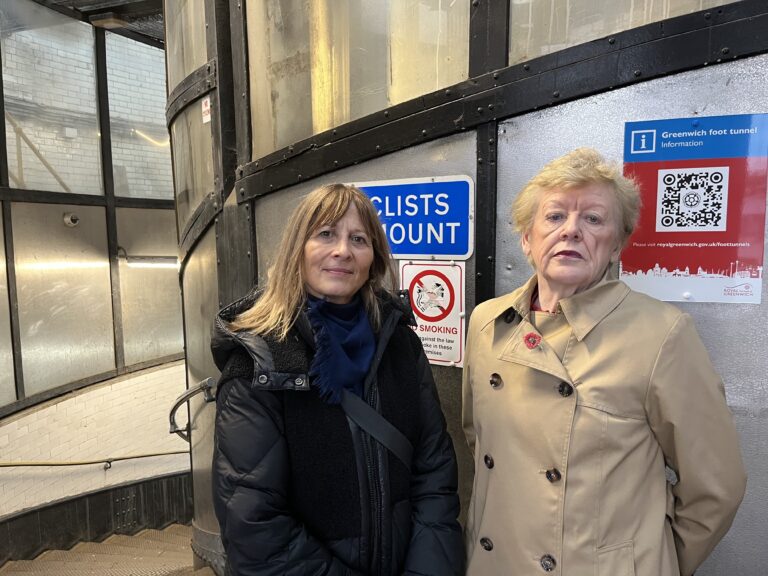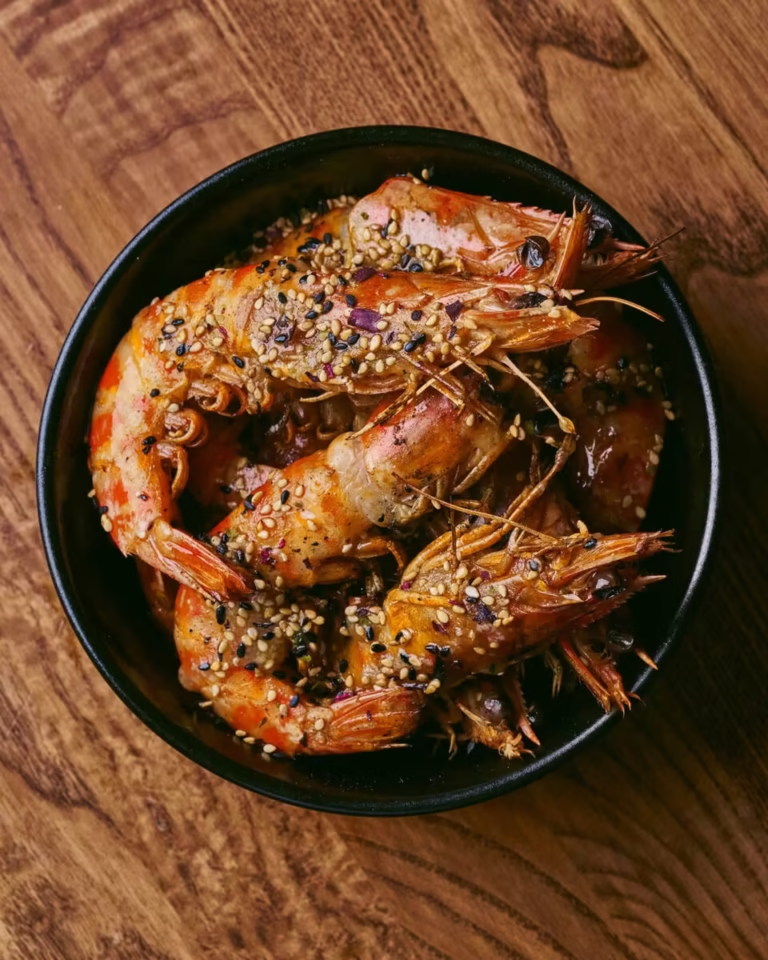Vera Keech lives life to the full and claims her get up and do it attitude is down to her Catholic beliefs. “God gave me life,’ she says, ‘so I’m going to use it,’ writes Michael Holland.
Born in Swan Lane Buildings to parents who came from opposite sides of the Thames – her mum from Ainstey Street, Rotherhithe, who did office cleaning to fit around bringing up children, and her lighterman dad from Wapping. It is, then, no surprise that the river is a constant in her life. Both of Vera’s brothers, Sid and Ted, followed their father on to the Thames, although Sid decided to be a lorry driver after falling in the Surrey Docks. As he floundered in his winter coat and boots he was saved by a fellow lighterman dragging him out. Sid realised a life on the water was not for him. Her son and two grandsons are also lightermen, and ‘all the uncles and cousins became lightermen,’ she claims with pride.
At the outbreak of war, baby Vera, the youngest of four siblings, was evacuated to an uncle’s in Hertfordshire where the relatives brought her up until she was seven. On her return she went to Albion Street School before going on to Credon Road Secondary School. She recalls, ‘My mum thought it was too far to go to school so she put me in St Mary’s, which was just a short walk up to where Albin’s is now.’
Young Vera (Williams) played out in the buildings and laughs as she recounts how she would play hopscotch in the square and tap dance on the tops of dustbins ‘cos the metal lids made the right noise’. This led to her joining Dolly Cooper’s dance troupe who would put on shows in the Rotherhithe Assembly Hall. Vera now starts giggling as she tells the story. ‘We were called Dolly Cooper’s Super Kids and because my Mum couldn’t afford tap shoes for the dance class my brother used to screw Blakeys on the bottom of my school shoes, and I used to share ‘em with Max Bygraves’ sister, Maureen, who lived in the next block, cos she didn’t have any tap shoes, either”! When Vera managed to stop laughing she said that because of this shoe-sharing her and Maureen could not be in the same dance number for the shows.
Vera liked school because she got the attention she felt was lacking at home with all the grown-ups busy working to bring the money in: ‘We had a really good crafts teacher and I used to love doing sewing’. This was good practise for the world of work as Vera’s mum found her job as a Court Dressmaker, ‘It was right up my alley,’ she says.Vera explained that it was ‘Doing the embroidery and beading and fancy stitching on dresses.’ But the job was a non-starter ‘as it only paid ten-bob a week and Mum said theat ain’t enough.’

A cousin’s wife stepped in with a job in the National Dock Labour Board office in Plough Way as a punch card operator. ‘We did all the dockworkers and lightermen’s wages, and that was 50-bob a week, so Mum had £2 and I had the ten bob.’ But keeping just a fifth of her wages was not enough for this teenager: ‘Me dad was good, he’d always give me half-a-crown for a new pair of stockings, or anything that I needed.’
Nevertheless, after three years, Vera was sacked for ‘being cheeky’. She laughs at the story of how she told a colleague to ‘Shut up’, who then told the boss who reckoned Vera was ‘Too lippy’ and sacked her. This was not something she could have told her mother, but luckily a friend knew of jobs going at Monk & Glass doing similar work, so she started there and was able to tell her mum that she had moved for more money.
For fun, Vera and her friend would venture out to the Savoy Club in Catford. ‘We went dancing on Friday and Saturday nights there to see if we could meet a bloke to take us out for the rest of the week, cos we had no money.’ Once again, she fell into fits of giggles. ‘Then dump him the next week and hope you didn’t see him down there!’
Being a skilled worker meant Vera could keep changing jobs for more money, so her next move was to the West End, ‘where they really paid well’, she says with a glint in her eye. Vera listed other jobs from the LEB to IBM, adding, ‘I never got the sack again but every time I moved I got more money.’
While at IBM, Vera met her husband Pat Keech in the Catford club, although he lived in Wade House, the next block from her on the Dickens Estate where the family had moved after outgrowing Winchelsea Buildings. The courting couple would go ‘to the pictures and dancing, and nights out in the Concorde and the Lilliput’ but Vera reveals she wasn’t big on pubs because her father was an ‘old drunk so I didn’t drink a lot’.
When they married she began working part-time, but left when her first son Timmy arrived, doing just an office-cleaning job at Baldwin’s the solicitors. ‘I used to get on me little bike and pedal up to their Tooley Street, office’ she remembers.
Eventually, after two sons, Vera returned to computing in Peek, Frean’s where she stayed for about nine years until the firm relocated to Liverpool, before going back to the City with Midland Bank. The 28 years there took her up to retirement, but that didn’t last long because her skills were always required somewhere. Retiring actually turned into ten years at a nursing agency, where she would also do a few shifts as a carer.
Being a lightermen means you can enter the legendary Thames boat race – The Doggett’s Coat & Badge. Son Timmy came 2nd twice, and her two grandsons, Jack and Patrick, both came 1st in successive years, putting the Keech name in the annals of this, the oldest boat race in the world. Jack now trains rowers.
As well as the Thames being a constant in Vera’s life, care work has also been a big part ever since she helped look after her Down’s Syndrome brother-in-law. This led to her being invited to help out the church with their annual trip to Lourdes with disabled children. That was in 1976 and she has taken the children every year since. Lourdes became so important for the Keech family that when her husband died, Barry Albin helped her fulfil Pat’s wish to have his ashes scattered there.
With her husband gone being alone in her flat was unbearable so, with the help of a local priest, Vera took off for Sri Lanka to do volunteer work in an old people’s home and a school for Down’s Syndrome children while living in a convent with the nuns and keeping in touch with family by phone. And it was a telephone call from a granddaughter asking Vera to come home for Christmas, which she did, luckily missing the tsunami that flooded the town there five days later. It is, though, still a place she visits to see old friends.
This care work led into Vera starting the Southwark Helping Hands Club on Silwood Estate, which grew and grew. When the estate was redeveloped the club moved to Paradise Street until Sister Cecily made life awkward for them and they moved to Dockhead. From there the next stop was Wade Hall until it got renovated. At this point, Vera had nowhere to go. ‘I got in my car and drove round,’ she says, ‘and I saw a sign saying Community Hall in the old Peek, Frean’s, so I went in and asked.’ Grosvenor Estates gave Vera and her club the hall rent-free. That also was being developed so now the club is held in the old Scott Lidgett School with Vera still running it.
Vera has always lived within a mile of where she was born and now lives just a few yards from her favourite place – Southwark Park.
She keeps retiring but never stops working. She continues to live her best life and has plans to live as long as she can while still doing all that she does now: ‘That gift of life that God gave me, I’m gonna wear it out right ‘til the end.’






